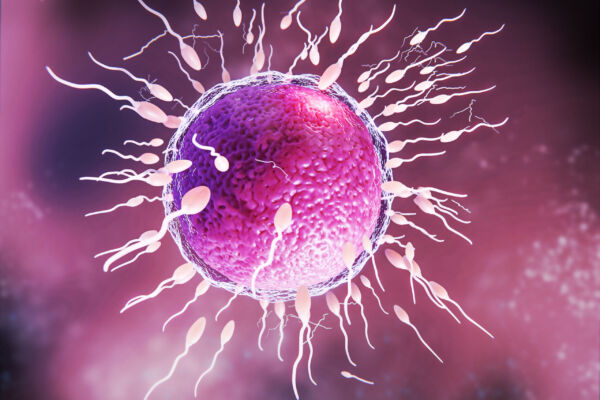Causes of Female infertility


For pregnancy to occur, every step of the human reproduction process has to happen correctly. The steps in this process are:
- One of the two ovaries releases a mature egg.
- The egg is picked up by the Fallopian tube.
- Sperm swim up the cervix, through the uterus and into the Fallopian tube to reach the egg for fertilization.
- The fertilized egg travels down the Fallopian tube to the uterus.
- The fertilized egg attaches (implants) to the inside of the uterus and grows.
Causes of female infertility include:
Endometriosis
- the growth of uterine tissue outside the ovaries. It leads to the development of scar tissue and may block the fallopian tubes thereby causing infertility.
Damage to the fallopian tubes
- A blocked or damaged fallopian tube can prevent sperm from reaching the egg or prevent the egg or fertilized egg (zygote) from moving from the ovary to the uterus to be implanted.
Poor nutrition
- Poor intake of proteins, micro and macro-minerals and vitamins is associated with reduction in reproductive performance
Polycystic ovary syndrome
- PCOS is caused by hormonal imbalances and leads to the development of small cysts in the ovaries.
- The cysts cause irregularities with the menstrual pattern and thus make it hard to time sexual intercourse during ovulation.
Ovulation disorders
- Problems with the regulation of reproductive hormones by the hypothalamus or the pituitary gland or problems in the ovary can cause ovulation disorders.
- A woman’s age, hormonal imbalances, weight, exposure to chemicals or radiation and cigarette smoking all have an impact on fertility.
Uterine fibroids
- block the fallopian tubes or stop a fertilized egg from implanting in the uterus.
- Large fibroids may prevent a fetus from growing fully due to decreased space in the uterus.
Sexually Transmitted Infections (STIs)
- STIs like gonorrhea and chlamydia can cause infections in the fallopian tubes.
- These infections could cause the buildup of scar tissue that blocks the fallopian tubes and disrupts implantation
Premature Ovarian Failure/ Insufficiency
- Every woman is born with a finite number of eggs.
- This disorder is characterized by a premature loss of eggs in the ovaries.
- If the ovaries do not have sufficient eggs, getting pregnant becomes very hard.
- The condition may be caused by autoimmune response, chemotherapy or genetics.
Hypothalamic Dysfunction
- There are 2 hormones responsible for stimulating ovulation. These are the follicle-stimulating hormone (FSH) and luteinizing hormone (LH).
- These hormones are produced by the pituitary gland.
- Stressful conditions, very low or high body weight or a drastic change in weight can affect the production of these hormones and, in turn, the release of eggs by the ovaries.
Previous Abdominal Surgery
- Surgery in the abdominal region can result in the development of scar tissue.
- This may cause an ectopic pregnancy or one wherein the fertilized egg is implanted in the fallopian tubes instead of the uterus.
- An ectopic pregnancy cannot be carried to full term and may even be dangerous for the mother.
Uterine Abnormalities
- Physical abnormalities in the reproductive organs such as abnormally shaped uterus, cervical stenosis or narrowing of the cervix, etc. can also cause infertility.
Hyperprolactinemia
- Hyperprolactinemia refers to excessive production of prolactin (the hormone that stimulates the production of breast milk).
- When breast milk is being produced, ovulation may get disrupted.
Cervical mucus issues
- Abnormal cervical mucus can prevent sperm from entering the uterus, but this problem is rarely a major cause of infertility.
Unexplained Infertility
- In some cases, doctors may be unable to determine the exact cause of infertility such infertility is called unexplained infertility.
- Being diagnosed with infertility can be stressful but it does not mean that you cannot have a family.
- Identifying the cause for infertility is key to determining the best way to treat the condition so that women can have a healthy pregnancy.
Who is at risk for Female infertility?
There are some general factors that affect your ability to ovulate, conceive or deliver a child successfully. These include:
- Higher maternal Age
- Smoking
- Weight
- Alcohol
- Anovulatory menstrual cycles
- Autoimmune disorders
- Blood clotting disorders
- Eating disorders
- Chronic diseases such as diabetes
- Sexual History
